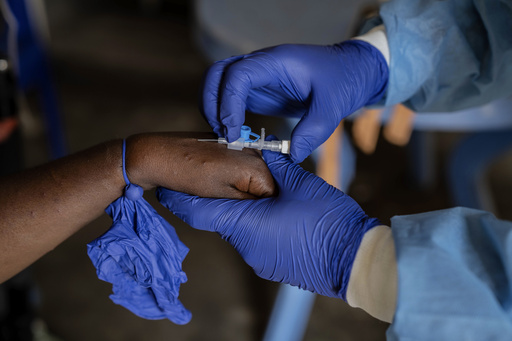LONDON — According to the World Health Organization (WHO), the incidence of mpox cases in the Congolese region where a new, more contagious strain emerged seems to have stabilized. However, the virus continues to escalate in other parts of the country, as well as in neighboring Burundi and Uganda.
In a report released on Monday, the international health agency noted a general upward trend in mpox infections, although signs of stabilization have been observed in South Kivu. This region was where the more infectious variant first gained a foothold earlier this year, particularly among sex workers and miners in the gold mining community of Kamituga.
While the WHO recognizes the apparent stabilization in South Kivu, it also pointed out that extensive testing is still lacking, complicating efforts to fully grasp the virus’s transmission dynamics.
As of last week, less than 100 laboratory-confirmed mpox cases had been reported in Congo, a significant decrease from nearly 400 cases recorded in July. Experts have indicated that the recent trends suggest a stabilizing situation, providing an opportunity for health agencies to effectively eradicate the outbreak.
To date, around 50,000 people in Congo have received vaccinations against mpox; however, the Africa Centers for Disease Control and Prevention estimate that approximately 3 million doses are necessary to fully control the outbreak.
The outbreak in Burundi is also influenced by the newer variant of the virus, which is associated with less severe symptoms. This means that those who are infected may not be aware they are capable of transmitting the illness. Over the past two weeks, Burundi has averaged over 200 new mpox cases weekly, mainly affecting children and young adults.
In Uganda, there were 100 new reported cases last week, with WHO indicating that the primary mode of transmission is through sexual contact, predominantly affecting the adult population.
Mpox, which was formerly referred to as monkeypox due to its initial identification in laboratory monkeys, spreads mainly through direct skin-to-skin contact with infected individuals or through exposure to contaminated clothing or bedding. It is known to cause visible skin lesions, which may dissuade individuals from engaging in close contact.
In August, the WHO declared the rapid spread of mpox in Congo and other regions in Africa a global health emergency. So far, the continent has documented over 46,000 suspected cases, including 1,081 fatalities.
The WHO has announced an expert meeting scheduled for next Monday to evaluate whether mpox still qualifies as an international emergency.
Last week, the UK reported the first instance of this more infectious mpox variant spreading beyond Africa, involving an individual who had recently returned from the continent, along with three household contacts. All affected individuals are currently receiving treatment in two hospitals in London.



